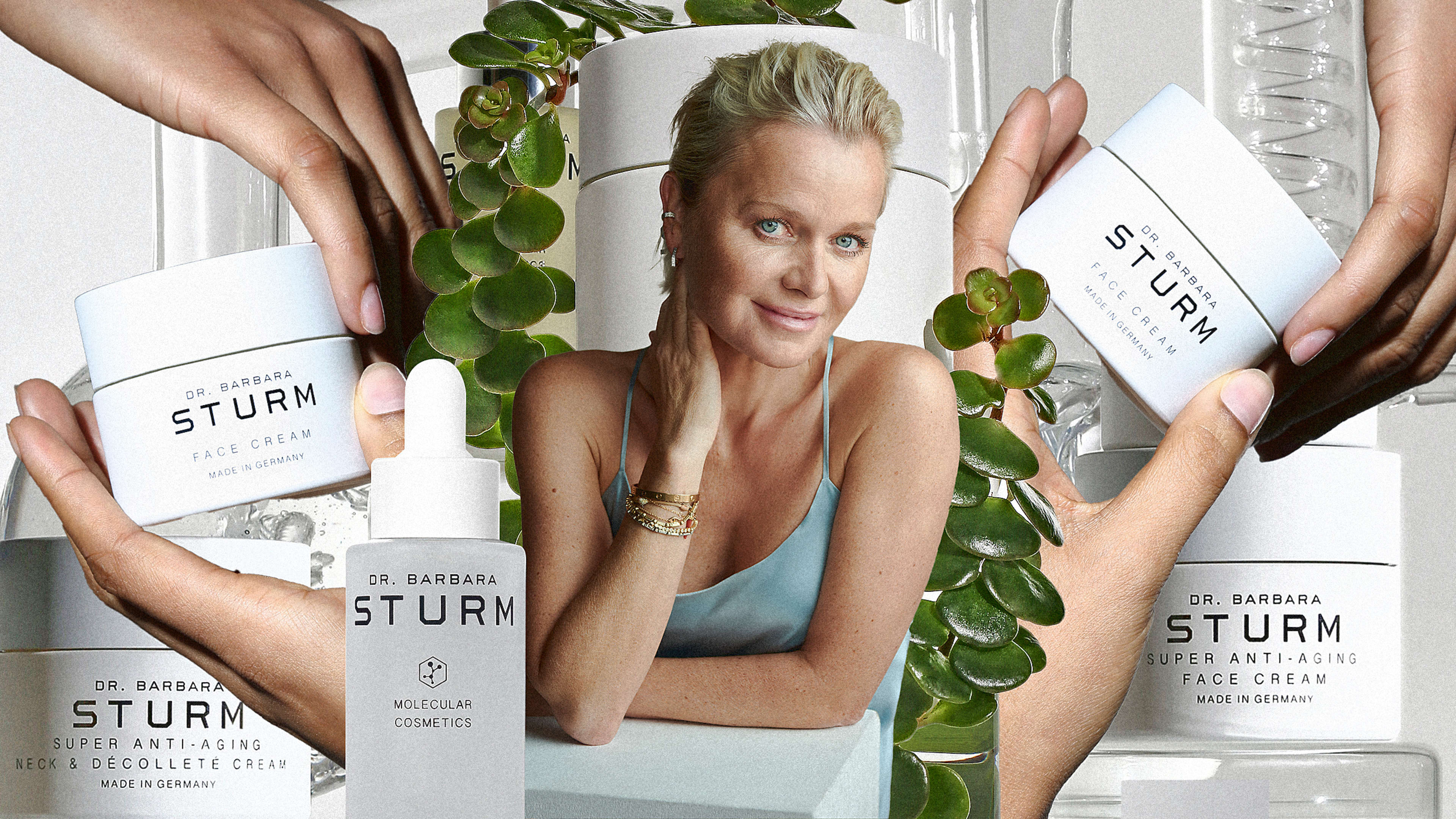Some skincare aficionados liken Dr. Barbara Sturm to a messiah. Others claim that the price of her eponymous skincare line– a hyaluronic acid serum retails for some $300– amounts to highway robbery. In a crowded space– the skincare category accounts for around 41% of the global cosmetics industry– and with customers willing to spend more money than ever on skincare and makeup, Sturm’s line has stood out due to its high price tag, celebrity endorsements, and its founder’s own mystique. Her popularity is also part of a larger trend: while customers are growing increasingly skeptical of skincare brands launched by celebrities, brands created by doctors– including the likes of 111Skin, Eighth Day, Augustinus Bader and PillowtalkDerm– are booming.
Unlike other physician-founders, Sturm is not actually a dermatologist. She started her career in sports medicine as an orthopedic surgeon, researching inflammation of the joints. In her marketing and in our interview, she states that she develops products to fight it. In 2002, she discovered that by removing the anti-inflammatory proteins in the clients blood, and re-injecting the plasma into the skin, she could help the healing process and reduce signs of aging. She started formulating creams with a patients’ blood and selling them. After treating the likes of Kobe Bryant for his knee injuries, Sturm saw an opportunity to apply the technique she developed to facials.
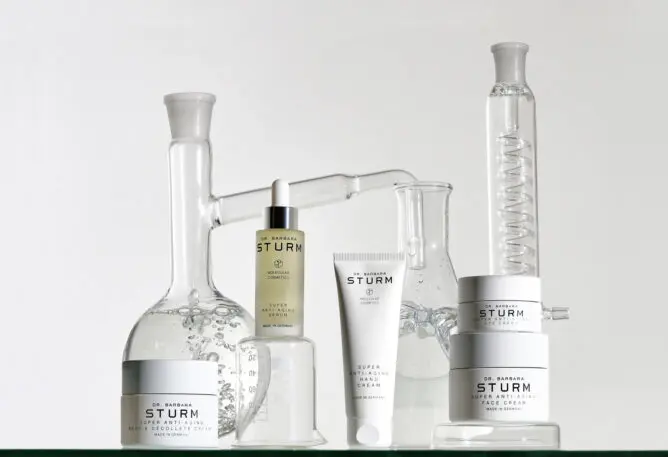
So, she launched her signature Vampire Facial (that’s the one that famously yielded a famous Kim Kardashian bloody-faced selfie). Sturm began making cream made from proteins extracted from her clients’ blood and selling them for a hefty $1400 price tag before launching a consumer line now sold in most luxury department stores. It has since expanded to include ranges for darker skin tones, teens, babies, haircare, supplements, and tea. Two categories with lower price points still cost a pretty penny: her teen range retails between $35 and $100 and her supplements and teas cost $60 and up.
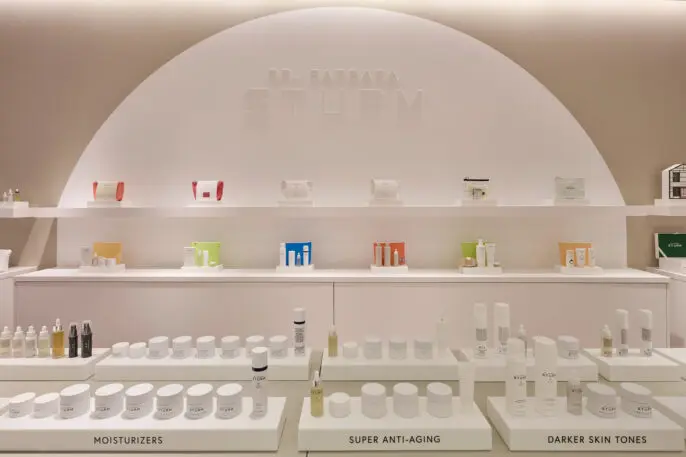
Dr. Angelo Landriscina, a dermatologist for cosmetic dermatology provider Ever/Body, believes that most luxury products don’t exactly live up to their claims or justify their high price points. To him, consumers have a better chance of getting the same results for less. “Back in the day, luxury products were what everybody wanted, but they weren’t necessarily the most evidence-based products. Then consumers became more educated when it comes to the science of skincare. People were turning to brands like The Ordinary or Cerave because they felt like it was a more sound choice,” Landriscina says. “People caught on to the fact that you don’t need to spend a ton of money to get an effective skincare routine,” he added. To stay relevant and still appeal to customers, luxury skincare needed a rebrand.
That’s why these days so many high-end brands are led by doctors. Customers may have worked out that niacinamide, or vitamin E can be found on drugstore shelves, but a cream promising to replicate the work of a celebrity dermatologist? Might be worth it! Brands like Sturm’s and other ultra-luxury lines like Augustinus Bader—created by a stem cell and biomedical scientist who first created the technology in his products to treat burn victims–have thrived by emphasizing the medical credentials of their founders in their marketing. Even the likes of Chanel and Dior highlight the dermatologists and estheticians behind their own skincare lines. “I do think that people turn to these brands because, just seeing that doctor title does give it credibility in those people’s eyes,” Landriscina says although he is wary of them. “A lot of these doctor- led brands are not necessarily offering you something that you wouldn’t be able to get somewhere else, from a comparable brand that just doesn’t have a dermatologist fronting it.”
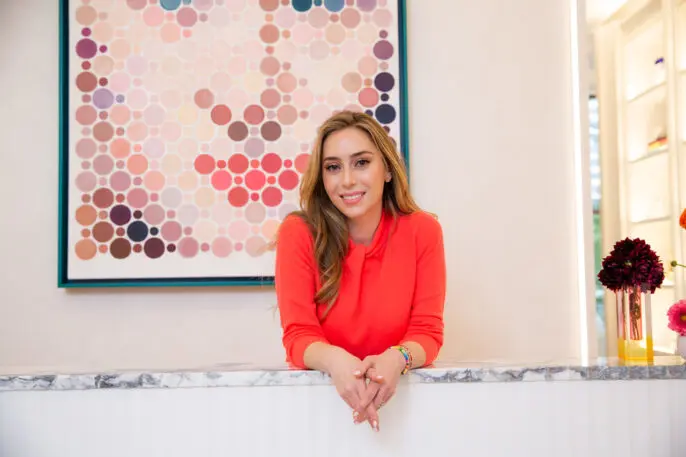
Dr. Shereene Idriss, a dermatologist who became famous by disseminating straight-talking skincare advice on Youtube, Instagram, and Tiktok before launching her own brand, PillowtalkDerm, says that consumers also have a bigger connection to experts due to social media. “I actually think the difference today versus like 20 years ago is social media, and people having a connection to the physician behind a brand,” Dr. Idriss said. “Customers are going to look up the physician and actually see them in action.” Sturm has been able to walk a fine line, using her doctor designation to sell products while also courting celebrities– the likes of Angela Bassett and Katie Holmes have endorsed her products without getting paid for it. On social media, she focused on educating consumers about different ingredients and practices they can adopt to reduce inflammation in their skin.
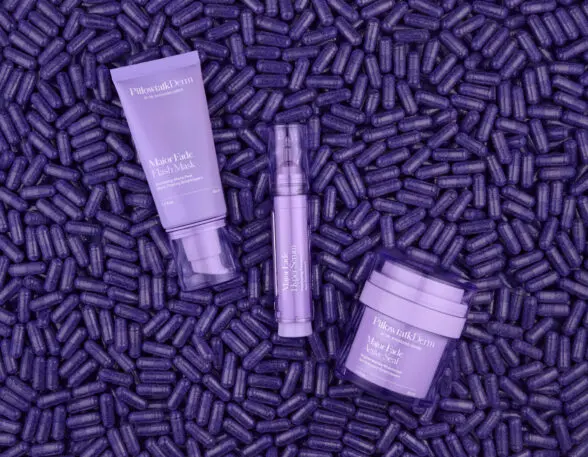
Recently, the skincare guru has built another point of connection for her consumers. Last year, she opened two boutique spas in New York City—one in Soho and the other on the Upper East Side—where facialists dressed in all white can whisk you away for an hour of relaxation in rooms dressed in clinical millennial pink. Other locations include Miami, Los Angeles. On offer? Facials from estheticians using what the brand calls “medical grade skincare.” There’s not a doctor in sight.
Recognize your brand’s excellence by applying to this year’s Brands That Matter Awards before the early-rate deadline, May 3.
